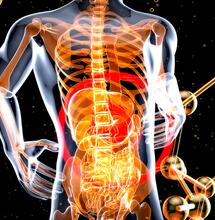Occasional blower or addict? Where is the line?

Many people can take or leave cannabis relatively easily. But that's not the case for everyone. For some, cannabis use can develop into addiction.
Recently released data from The National Institute on Drug Abuse suggests that 30 per cent of cannabis users may experience some level of "cannabis use disorder."
Data estimates that 4 million people in the U.S. alone met the criteria for cannabis use disorder in 2015. Of that number, only 138,000 voluntarily sought treatment. Those who use cannabis in their adolescence before 18 are up to 7 times more likely to develop a dependency.
Cannabis use disorder can evolve into addiction when you can't stop using it, even if it interferes with your daily life.
Mental Health
Mental health conditions play a big part in the chance of developing an addiction. Drugs appear to work very well for people with mental health problems at first. If you're anxious, you can relieve it with a few hits and a beer. But then, the tolerance sets in. So, not only do they need more to ease the anxiety, but when they stop, the anxiety comes back worse.
Tolerance
Dependence on weed occurs when users build a tolerance and need more to experience the same effect. When a drug enters your system, it overrides the brain's natural processes and boosts functions out of normal parameters.
The brain can become resistant to the effects of the drug to protect itself so that over time the medication doesn't have as strong an effect. To feel the same high, the person must take larger doses.
THC also affects the brain's reward system and the dopamine release, the "pleasure hormone". Dopamine is an important neurotransmitter that regulates reward, motivation, and self-control.
All drugs, whether legal or illegal, can cause addiction by stimulating dopamine signalling in the main pleasure centre of the brain. By producing dopamine, they activate the main reward centres in the brain. This explains why taking drugs feels pleasurable."
Dependence
Once you become tolerant of a substance and its effects, dependence can set in. Use a drug often enough, and the brain will become habituated. In a shot at returning to baseline, the brain will counteract the difference by raising a bodily function that the drug lowered, such as heart rate, or reducing a boosted process, such as mood.
As the drug wears off, your heart may race, become irritable or depressed, or experience many other reactions called withdrawal. Although nowhere near as extreme as heroin or alcohol withdrawal, quitting cannabis will cause withdrawal symptoms in heavy, frequent users.
The cycle of addiction
Unlike opiate misuse, cannabis misuse happens much slower, taking months or even years to develop fully. Users might not instantly recognise that they've crossed the line into addiction. Part of the process for some is rationalising continued use despite adverse consequences.
People may not admit to themselves or discuss with others the impact a substance has on their life. So, they get stuck in the cycle of using more and the adverse outcomes."
The fundamental question to ask yourself if you are worried that you are smoking too much weed is simple, can you stop for a set period? If you can't, it might be time to try and cut down, at least.










